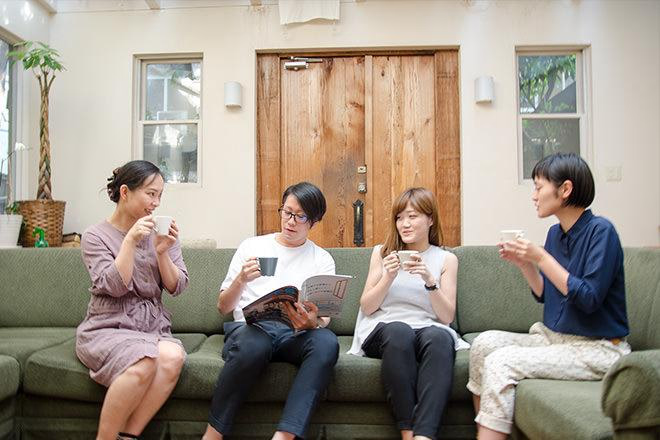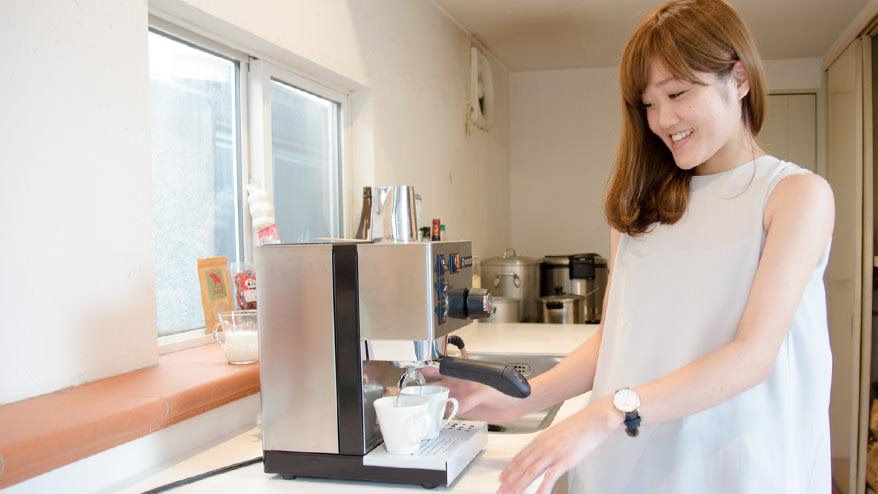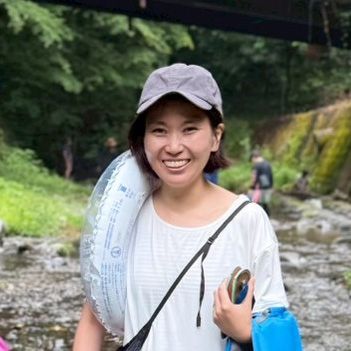It all started at last year's end-of-year party. The plan was to collect money from employees to buy a new coffee maker. (Click here to read about the DIY project by the organizer of last year's end-of-year party .)
The project was a great success, with more donations collected than expected. But just when everyone was excited about getting a new coffee maker, things started to get a little turbulent. It took nearly five months for the machine to be fully operational.
The main reason for this was the need to significantly change the operating rules of coffee makers.
Until now, it was a fully automatic type that could make freshly ground coffee with the push of a button, so it was easy to use. There were no particular rules, and it was just "somehow" operated by someone's goodwill.
However, the newly purchased machine requires a lot of work, starting with grinding the beans, measuring the amount of beans and water, steaming them for a certain time, and finally starting the drip process. Therefore, it is no longer possible to operate it "just by chance."
So the four members of the Coffee Committee decided to "set new rules." How can we make coffee a pleasant, fun, and delicious experience for everyone? We asked the four, known as the "Coffee Kings" within the company, about their DIY rule-making.
New coffee makers need new rules
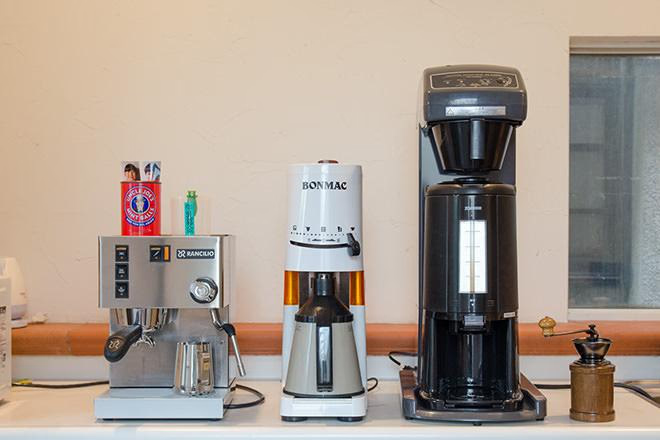
Newly installed machines. From the left: espresso machine, grinder, drip coffee machine
The "Coffee Four Heavenly Kings" are four people who met to decide the rules for coffee. However, the discussion had already started before that, and the organizer of the end-of-year party came up with the idea of "collecting money from employees' wages to buy a coffee maker," and he was also in charge of deciding on a new machine.
First, we spoke to the two organizers of the year-end party (Kawarazaki and Fujiwara, both of whom are also members of the "Four Heavenly Kings of Coffee") about how they chose the coffee maker that inspired them to think about the operating rules.
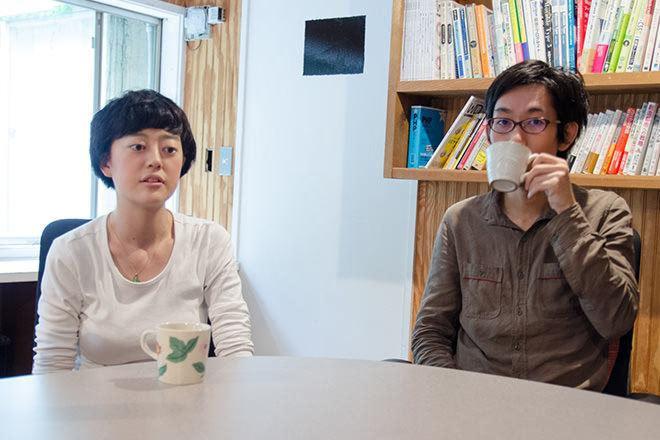
Fujiwara (left) and Kawarazaki (right), who were organizers of the year-end party
- How did you choose your coffee maker in the first place?
 Fujiwara
FujiwaraThere are two main types of coffee makers. One is a bit of a hassle but it's delicious. The other is one that you can easily make coffee with the push of a button. When we had to decide which one to choose, we chose the drip type without a grinder, because of the DIY-oriented atmosphere in our company and because we thought it would be better to take the time to make delicious coffee ourselves.
To be honest, we are still new to coffee, so we asked Manabe-san (head of the production department), who is in charge of the food team at Google , for recommendations.
Based on that feedback, we selected the coffee maker, grinder, and espresso machine.
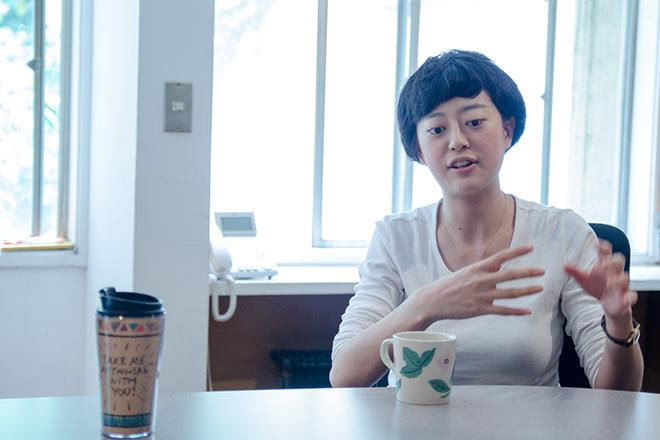
Produce Business Department, Fujiwara
- So that's why you divided it into three parts based on function.
However, there was a stir within the company that "the rules for handling coffee would change."
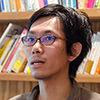 Kawarazaki
KawarazakiYes. My previous coffee maker was fully automatic, from the grinder to the drip, but this time I chose a non-automatic one in pursuit of better taste, so I received a lot of comments and questions from various people.
Where should it be stored? Who will brew it and when?
So I talked with Mr. Hayashi (the representative), and we decided that it was important for us to decide future operating rules ourselves, and that we should stop having the executives make decisions unilaterally.That's why we decided to hold the "1st Coffee Summit" in March of this year.
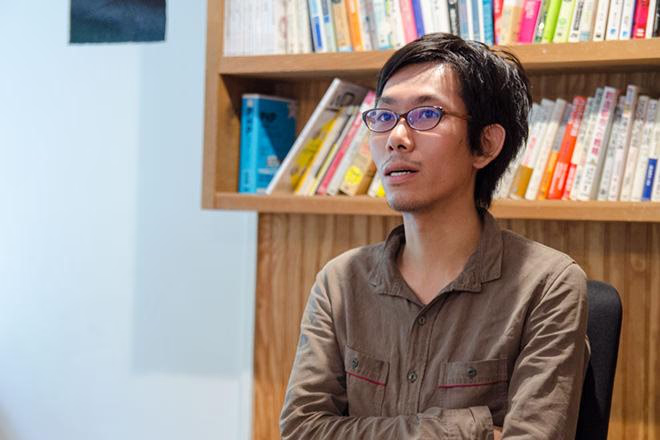
Creative Department: Kawarazaki
From the launch of the "Coffee Four Heavenly Kings" to deciding on the operating rules
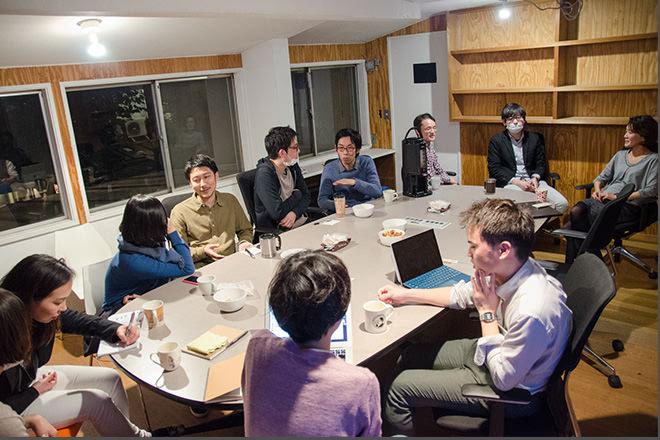
A scene from the summit where participants discuss in pairs over coffee
A coffee summit was held to decide new operating rules.
We recruited participants on the premise that those with opinions would attend, and those who were absent would just accept the decisions that were made, and about 20 people showed up.
- What specific topics were discussed at the Coffee Summit?
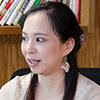 Nasu
NasuFirst, Mr. Hayashi gave us a theme that we should start by discussing, and then we all discussed it together.
- The company doesn't provide cigarettes, and they don't even buy ashtrays. Not everyone drinks coffee, so is it okay for the company to buy beans for us?
- The cats are fed by volunteers, but how is this different from feeding the coffee?
- If I were to make a latte, would it be better for the company to buy me a stirrer and milk?
The main activity was for participants to pair up and discuss such fundamental issues with the person next to them, then make a presentation.
- What do you think is the general idea behind this discussion?
 Fujiwara
FujiwaraYes, I think the main focus was on breaking away from the very idea that we had to operate within the rules set by those above us.
- So it started with questioning the assumptions.
 Nasu
NasuWe started by discussing whether it was right for everyone to decide on operational rules together, and whether we even needed a coffee manager in the first place.
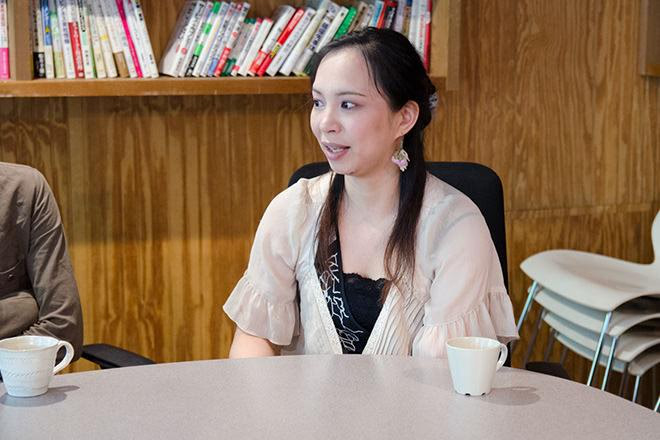
Coding Factory Department, Satoko Nasu
- Was the Four Heavenly Kings organization created because you decided it would be better to have an administrator?
 Nasu
NasuThe Four Heavenly Kings was merely a temporary project to determine operational rules. As we were deciding on the rules, we discussed how to deal with emergencies such as breakdowns, and decided that we needed an administrator.
 Fujiwara
FujiwaraFor now, we've decided to try it out for about three months and then decide whether or not to continue with the same members after that.
- Why did you all decide to run for the Four Heavenly Kings?
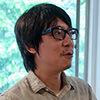 Hamabata
HamabataTo be honest, towards the end of the Coffee Summit, I couldn't see the goal and I was like, "What is this going to be like?" The atmosphere was tense, with people asking, "Who is going to speak?"
Perhaps in order to change this trend, Hayashi-san said, "Let's choose someone to set the rules." At that time, I was like, well... what is this situation? No constructive opinions were being offered, and no one really seemed to want to do it, so I thought, "Well, that's fine," and I ran for office, half-angrily saying, "Yes!"
Everyone (laughs)
 Hamabata
HamabataYou and Fujiwara ran for office at the same time, didn't you?
So I gave Kawarazaki-san a big eye contact (laughs).
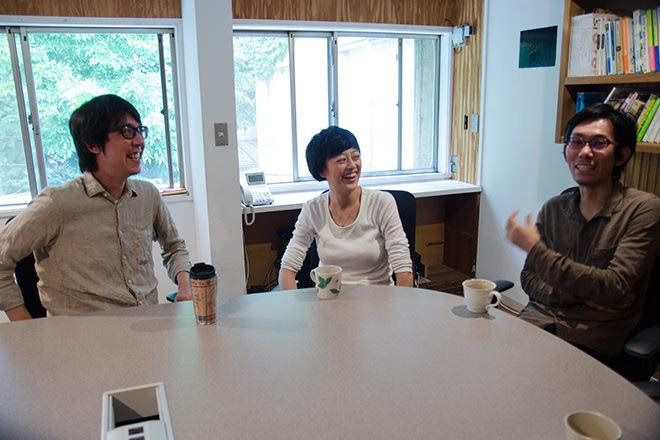
 Kawarazaki
KawarazakiThat's right. I had one foot in the door as the organizer of the year-end party, and Hamabata-san was looking at me.
Everyone (laughs)
 Kawarazaki
KawarazakiFundamentally, I'm the same as Hamabata-san; we've reached a point where the story won't move forward unless someone takes action, so I thought I should do it.
However, Fujiwara-san is usually away on business, so I thought it would be too biased to just have Hamabata-san and me, as we are on the same team in the same department.
So when I said, "I think it would be good to have someone from another department," Nasu volunteered.
 Nasu
NasuWhen I raised my hand, I thought, "Oh, there's no one from the Coding Factory Club (CF)." I wondered if no one would run.
As you said, I thought it was unbalanced, and I'd never had the opportunity to participate in something like this with voluntary companies, so I thought I'd give it a try.
Also, I simply drink a lot of coffee, so I thought if that's all I drink, I should probably do this (laughs).
- After the four coffee kings were decided, how did you proceed?
 Fujiwara
Fujiwara- The four of us got together once and decided where we would stand.
 Kawarazaki
Kawarazaki- After that, we spent about a month deciding everything from the basic rules to how we would handle cleaning and equipment.
 Nasu
Nasu- Until that was decided, Hamabata-san was in charge of making coffee and cleaning every day.
 Hamabata
Hamabata- With this group of people, it would be me.
 Kawarazaki
KawarazakiHe went to great lengths to do that.
I thought that if I showed people how hard it was for me to make coffee, they would sympathize and help me. (laughs)
-What is the effect?
 Hamabata
Hamabata- There were quite a few people who helped out. Some even took the initiative to wash the coffee maker. I thought, "Wow, these people are really nice."
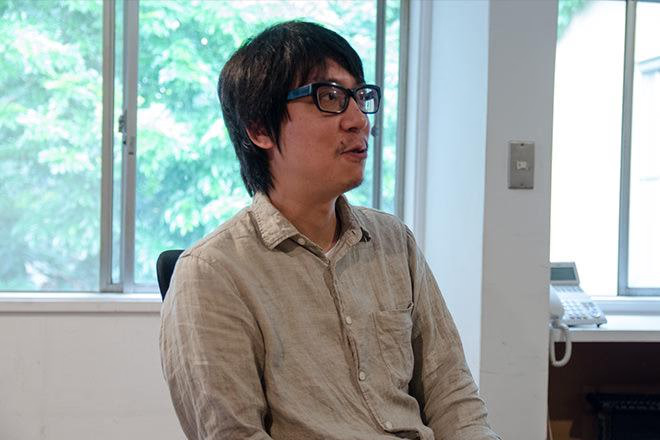
Creative Department: Hamabata
 Nasu
NasuHamabata-san also taught us how to clean and even made a video so that everyone could learn how to do it too.
You also did the storyboard drawing.
 Hamabata
Hamabata- I drew it.
 Nasu
Nasu- During the shoot, I assumed I would be working behind the scenes, but it turned out I was the one doing the demonstration. I happened to be wearing a jacket at the time, and since I couldn't roll up my sleeves, the water kept splashing on me (laughs).
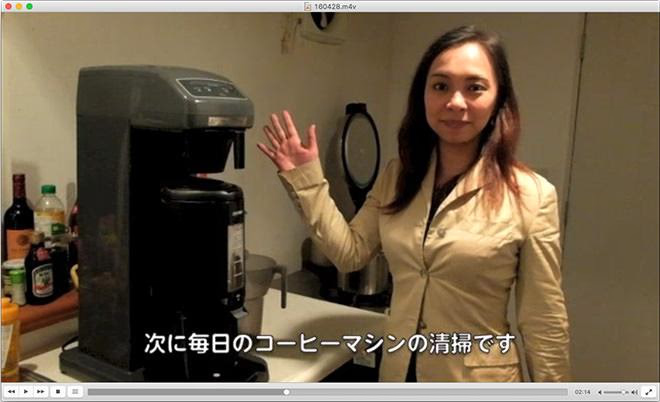
A video on how to clean a coffee maker. Starring Nasu
- Were the rules decided smoothly?
 Fujiwara
Fujiwara- Yes, it was decided after about three meetings.
- What points did you focus on when making your decision?
 Fujiwara
Fujiwara- The point is, don't decide too much.
 Kawarazaki
Kawarazaki- And we won't force anyone to do it. We want to operate it with people who are willing to do it voluntarily.
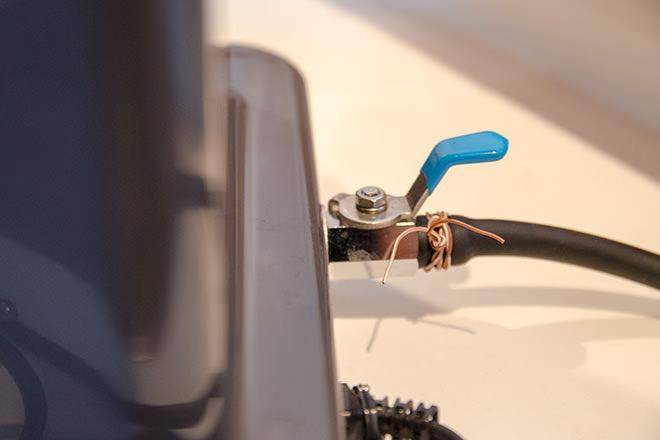
This hose was attached to the drain of a coffee maker, based on an idea from an operations team member. It's made from rubber used for weight training (the thickness was just right). This allows you to drain the water without having to take the trouble of moving it to the sink.
 Nasu
NasuI also took into consideration the time it would take to complete the work, so as not to put too much strain on the team.
At first, we thought we could save time by doing the cleaning and making coffee in the morning together, but we received feedback that cleaning in the morning was not hygienic, so we decided to have people take turns cleaning in the evening.
On the other hand, we didn't have a rotation for making coffee in the morning, but anyone who wanted to drink it started making it, so I no longer had to worry.
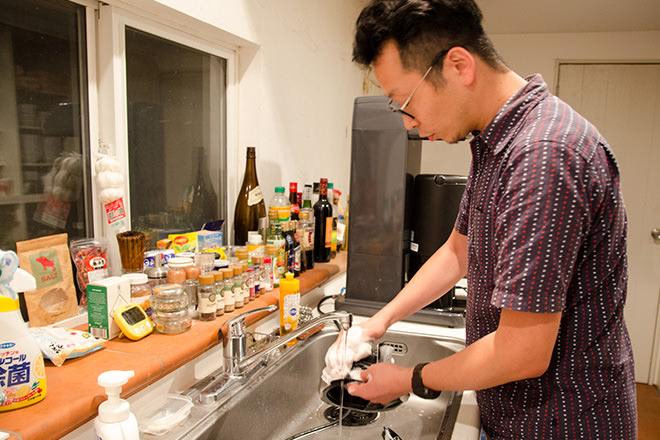
At night, I took apart the coffee maker and cleaned it.
- Nowadays, everyone is able to learn how to make coffee by being taught by someone, but I think there are still many people who don't know how to make coffee but would like to try making it themselves if they were taught how to do it. Will there be any opportunities to teach such people in the future?
 Fujiwara
FujiwaraShould I make a video on how to brew coffee?
Put a QR code near the coffee maker (lol)
 Hamabata
HamabataLet's make a booklet too.
Let's make notebooks and pencils. I think we should increase the number of products we sell.
Everyone (laughs)
The operation rules have finally been decided. My thoughts after actually operating the system. And what the future holds.
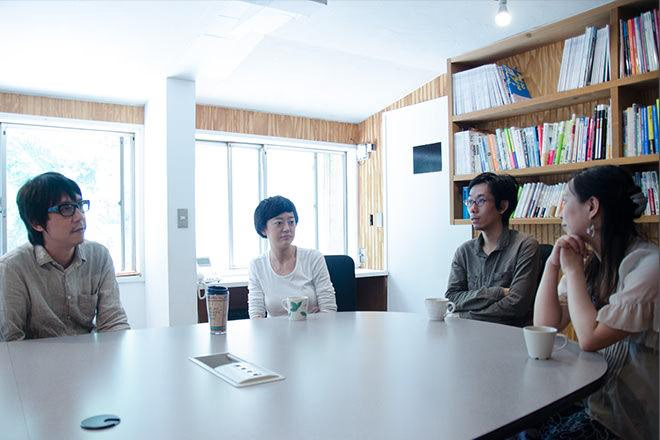
- How was it actually when you tried it?
 Kawarazaki
KawarazakiThere aren't any major problems at the moment.
 Nasu
NasuThe idea was that cleaning duty would be rotated among people who were in the Coffee Chatwork group, but some people said they hadn't joined Chatwork with the intention of doing the cleaning duty, and on the other hand, there were people who voluntarily came to ask if they could join the group.
- This is simply my opinion, but I think it would be better if it was a little easier to join and leave the group, for example, by saying, "I'll help out because my work is calm now," or, conversely, "I'm busy so I can't join right now."
 Nasu
NasuIndeed, there was no announcement made to new employees.
 Kawarazaki
KawarazakiMaybe I should put up a sign saying, "We're looking for people to join our coffee group."
-What do you think is the motivation for wanting to join a coffee group?
 Nasu
NasuSomeone who came in the other day said they came because they love coffee.
We are looking for people who love coffee and are willing to help with operations.
The question for the future is whether or not I will continue with my current cleaning duties.
 Kawarazaki
KawarazakiWe plan to discuss future plans once each shift has been completed.
The ideal situation would be for the system to function even without an administrator or the Four Heavenly Kings.
- Having decided on your own rules and implemented them, has anything changed?
 Kawarazaki
KawarazakiI was happy to find that there were more people who were willing to help than I thought. There was one person who took the initiative, and I thought it was good that he taught me how to make coffee. I didn't even announce it to everyone.
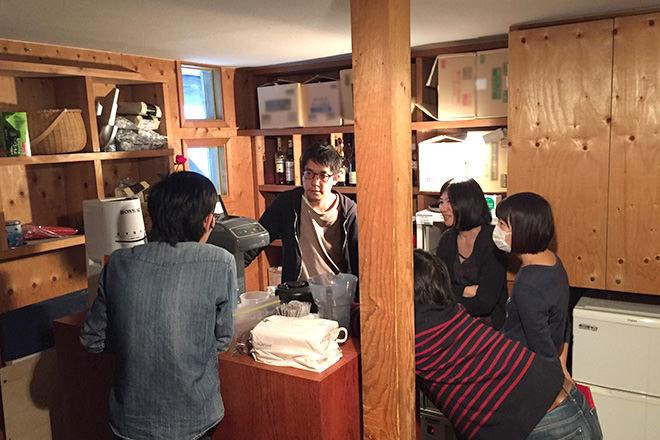
Hamabata (center) giving a lecture to everyone on how to use the coffee maker
 Nasu
NasuHowever, with the number of new staff increasing, it might be a good idea to show those who don't know how to brew coffee how to do it.
 Hamabata
HamabataThe best thing I did was to clean the office and make coffee every day for a month before the operation started, which meant I had to come to the office about 30 minutes early. So I started getting up early.
Everyone (laughs)
 Fujiwara
FujiwaraIs it still going on?
 Hamabata
HamabataIt's come back a little bit (laughs).
Also, it feels really good to come early in the morning and clean up the coffee.
What are the rules so that everyone can enjoy coffee?
After the interview

Latte art: Tayama
What are the rules that allow everyone to enjoy coffee in a fun and delicious way?
With some people not drinking coffee at all, we needed to find rules for how to allow people from all walks of life to enjoy coffee.
The new coffee maker, purchased half with my spare time (my personal money) and half with the company's money, is an ambiguous entity that belongs neither to the company (public) nor to me (private).
That's why we should create rules together, rather than companies imposing rules or individuals acting selfishly. Based on this idea, the Coffee Summit reconsidered the premise from the beginning, and the Four Heavenly Kings of Coffee stepped up to create rules.
While being conscious of creating rules that are "not compulsory" and "not too strict," we also try to be creative and ingenious so that everyone can enjoy themselves through trial and error. The rules that are created in this way are put into practice by volunteers for "themselves and everyone."
Of course, there is still room for improvement. For example, you could try making a video on how to brew coffee, make a latte like a barista, grind recommended beans, etc.
We will continue to experiment so that everyone can enjoy coffee in a comfortable and delicious way.
